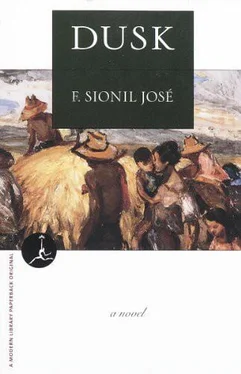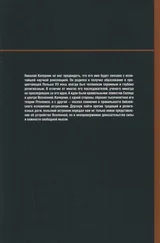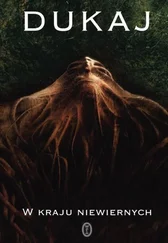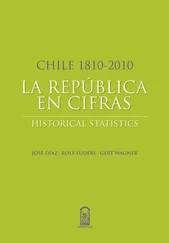Long afterward, he remembered what Dalin said through his bouts with pain.
“I’ll tell you what really happened. We were not shipwrecked. All of us in our family, we worked very hard.”
During the dry season, they gathered the dry leaves of coconuts and heated the huge iron vats which had earlier been filled with salt water and then left out in the sun until the water had evaporated. Her mother bought the shrimp from the fishermen and then stored them in earthen jars. And once they had enough to fill their boat, they sailed up the coast. In the next year, they journeyed by cart to the new towns of Nueva Ecija onward to Cagayan. They either sold the salt and shrimp paste or exchanged these for rice, which was abundant in the western plain. If they sailed up the Ilokos coast, they bartered for tobacco, handwoven cloth, and cotton twine, which the Pangasinan fishermen wove into fishnets.
On this particular trip to the north, a freak wind tossed them a distance from the shore. Toward late afternoon, they were overtaken by a boat with giant sails and six men aboard. They maneuvered their craft close to the frail boat for some time, bantering with them. Then toward sunset, the big boat edged alongside and the six men jumped into their boat. They killed her father; her brother and her mother, who were at the other end, were able to get their bolos but they, too, were overwhelmed. Her brother was able to wound one before he, too, was killed. Their bodies were flung into the sea. They tied her arms to a beam and leered at her. Soon it was dark; they loosened her bonds.
Through the daze and terror of the night, in those moments when she was left alone, she prayed that she would be allowed to live, although life would no longer be the same. Toward midnight, they gave her cold chunks of rice and salted fish which were like rocks in her throat. They let her drink a bowl of coconut water — but only so that she would have strength, for the six of them never let her rest.
“They did things to me,” Dalin said simply.
When the dawn limned the east, they were some distance from the shore, and the mountains were a blue wall beyond the waters. Their boat was fast — its sails bloated with wind, its prow cutting the water like a blade. Except for one who was at the stern, manning the rudder, all were asleep on the broad deck, sprawled between the earthen jars of shrimp paste and bales of cloth which they must have taken from other hapless traders. They did not even bother to wash the knives with which they had slain her brother and parents. The blood had caked, and seeing it she retched and threw up all that she had eaten in the night.
In the morning, they transferred the salt, the shrimp paste, and the husked coconuts from her father’s boat, which they had tied to their big sailboat. She was left on board. She could not make out where they came from, although they spoke both Pangasinan and Iloko. In the daylight their skin seemed darker, even shiny, perhaps from too long a punishment from sun and sea. For a time, she thought they were Moros, but those stories of their raids on the coast were of the past. Her parents were always aware of the dangers of travel by sea, but it was much safer than going over land that was infested with robbers, too.
The man who was at the rudder left his post, came over to her, and untied her hands. She would not dare jump into the sea, prowled by sharks and too distant from land. They did not touch her the whole day; they let her sit alone weeping, looking senselessly at the heaving waters around her, listening to the wind whip the gray sails above her. She feared the night, for they would surely come to her again.
They had a jar of basi and they took long draughts from it after they had supped on rice and salted fish. The helmsman often turned skyward, to a sky studded with stars. He pointed the prow to one of them. Perhaps, they never expected her to jump — she would not be able to swim that far to land and they no longer watched her. Drowning or being devoured by sharks was a better fate; if she stayed, they would eventually kill her anyway.
They circled many times, shouting, and at one turn, the prow of the boat almost bashed her head, but she always stayed under when their craft loomed near. They could not see her in the dark. They lighted a torch but that did not help. They gave up after a while and soon the high sails vanished in the dark altogether. She was finally alone, the awesome immensity of the sea around her.
As a child in Lingayen, she was no stranger to the moods of the sea; she knew how to keep afloat and her father had warned her and the other children about the undertow in the gulf that often dragged unwary swimmers to their death. They should not fight it and thereby lose their strength; they should just keep afloat and after the undertow had spent itself, then and only then should they attempt to swim back to shore.
God in His Heaven, where was the shore? Then she remembered the helmsman looking at the stars and guiding his boat by them. She recalled how it was on those nights when her father also turned to the stars and identified landfall.
The evening star — if she swam toward it, she would reach land. She could float — that was easy — but how could she defend herself from the marauders of the deep? Once, she felt something rough like an is-is leaf brush against her leg and her whole being trembled. A shark! The fishermen in their village had often caught baby sharks in their nets and fish traps and their skins were rough and could cut. For a long while, she waited for the snap of those razor jaws. But if it had been a shark, it did not return. She prayed again that she would not fall asleep, that the sea would not grow rough again and that she could continue to float without tiring too much. Already she had drunk mouthfuls of water and her stomach turned.
Dawn came stealthily shimmering on the waters and with sunrise, she was now sure where land was. Through bleary eyes, she could see the high outline of mountains — so near but really far. She paddled slowly toward the vision, doubting that she would be able to reach the shore.
Toward midday, a plume of smoke rose hazily in the distance. Soon it came into view — a black steamboat, one of those which must have come from the Ilokos or from other lands, headed for Manila — a place she had never seen but which she had heard about as the final destination of these giant boats that could go against the wind or sail on even when the seas were rough. It came closer and she could see shapes moving on the deck. She shouted till her throat ached and her lungs seemed ready to burst — but the big black boat did not lose speed — it glided on until it became just a speck in the distance, and then its plume of black smoke disappeared altogether.
In her worst moments of fear and hopelessness she thought she would just sink. But she kept on floating, marking time with her breathing, gulping the air painfully, her mouth now bitter and dry. Then, something glinted in the sun, and for a while she thought it must be a huge fish but it was not. She swam toward it for what seemed like forever and near it at last, she cried — it was a huge banana trunk and she embraced it, clung to it, and thanked God and all the spirits of the departed for this raft.
She paddled slowly. The sun rode the heavens and lashed down at her, blistered her skin, which hurt so much she would scream. Darkness finally came. It was cold. Her eyes closed and she would struggle to keep them open. The searing blisters, the aching in her throat were now dulled, even bearable, as sleep threatened to engulf her. Once, her grip on the trunk loosened and she seemed to have drifted off into sleep; she woke up in time, fear giving strength to her body and she gripped the trunk even tighter. Then, to her dismay, a skein broke off and now she was afraid that the whole trunk would fall apart before she reached the shore. Worse, it seemed as if the sea itself now wanted to claim her. The waves seemed bigger, and she could not see what was ahead as the sea heaved. Thoughts of death flashed through her mind once more, of fish feasting on her flesh as she sank to the bottom. Her legs were already numb and her arms were heavy as logs. It was then that she made the vow: that if she lived, she would serve whoever saved her for as long as she was needed and she would do anything, anything demanded of her …
Читать дальше












